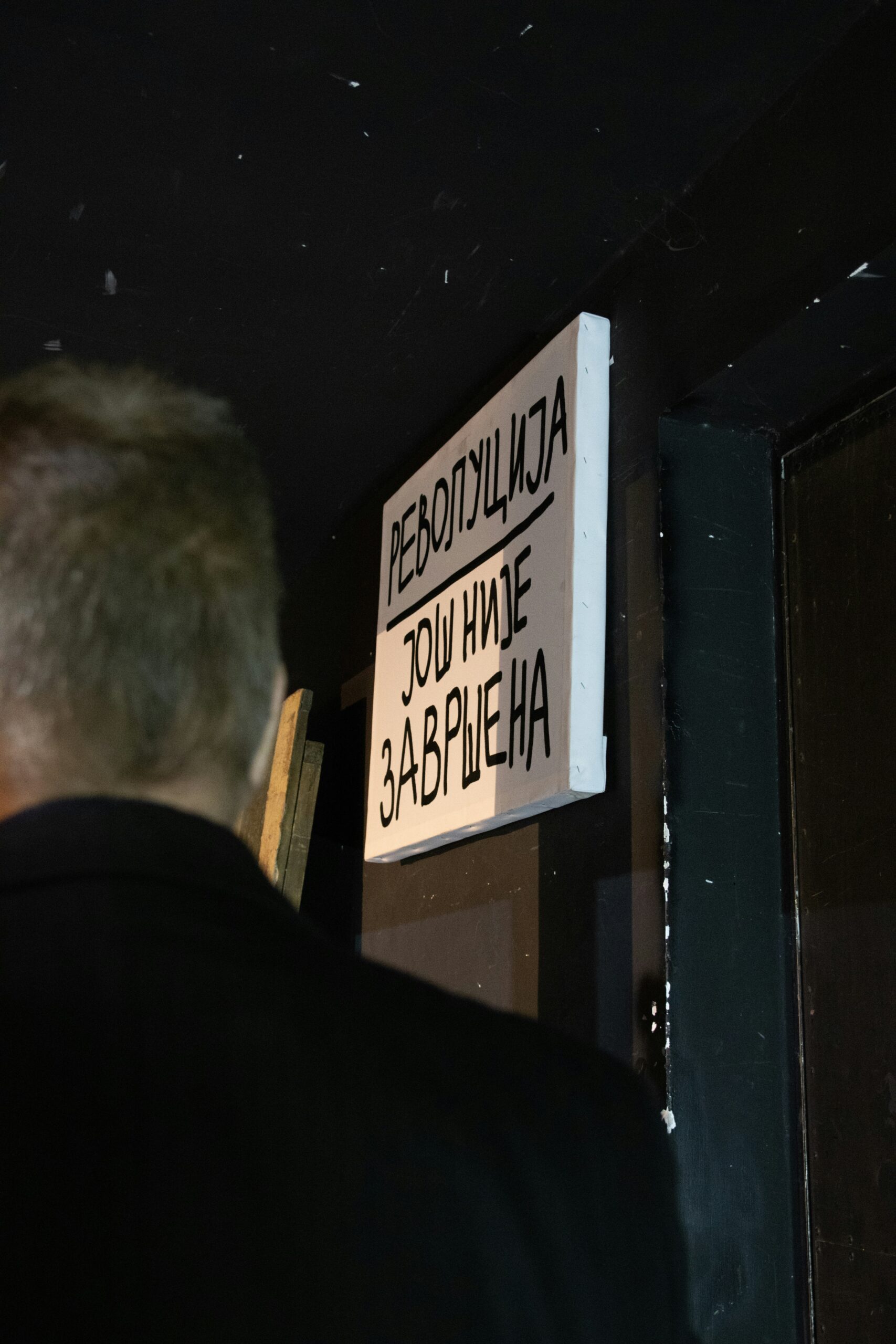Introduction to the Tate Brothers’ Return
The Tate brothers, Andrew and Tristan, have recently made headlines after returning to Romania following a controversial trip to the United States. Widely recognized for their provocative social media presence and contentious remarks, the siblings have garnered both significant followers and critics. Their notoriety extends beyond social media, as they have faced various legal issues that have captured public attention across multiple platforms and news outlets.
During their time in the United States, the Tate brothers were engaged in various activities, including media appearances and presentations that drew both support and condemnation. Their return to Romania is particularly significant, as they are required to comply with local legal mandates, specifically involving police reporting. This requirement stems from ongoing investigations that have put them under the scrutiny of Romanian authorities. The interaction between their controversial public personas and the legal framework within Romania renders their return a pivotal moment, both for their personal narratives and for the broader conversation surrounding social media influencers and accountability.
Background on the Legal Issues
The Tate brothers, Andrew and Tristan, have found themselves entangled in a complex web of legal challenges across multiple jurisdictions, notably in Romania and the United States. Their return to Romania has reignited scrutiny surrounding various investigations and allegations that have persisted over the past few years. In Romania, the legal issues stem mainly from charges involving human trafficking, rape, and forming an organized criminal group. Romanian authorities have been investigating these claims since early 2022, alleging that the brothers engaged in illicit activities related to running a human trafficking network that exploited vulnerable women.
The gravity of these allegations has led to significant media attention, as well as public debate over the implications of their actions. Consequently, this scrutiny intensified following the brothers’ previous legal encounters. The Tates have faced a series of controversies, including accusations that extend beyond Romanian borders, with similar claims surfacing in the United States. Reports indicate a potential focus on their entrepreneurial activities, which have drawn concerns from law enforcement regarding possible violations of various domestic laws. Investigations in the US have included a review of their online businesses and the management of personal conduct, digging into broader implications concerning how the brothers operate within digital and financial landscapes.
With their recent return from the United States, the brothers’ confrontation with the Romanian legal system has raised questions about their strategy going forward. Having been alleged to have attempted to structure their operations in a manner that would evade legal repercussions, they now stand at a crossroads. The implications of their return to Romania are profound, both legally and personally, as they navigate a landscape filled with legal uncertainties and consequences stemming from their past actions. Understanding the full scope of these legal challenges is crucial as their situation evolves and continues to unfold in coming months.
The Mandatory Police Reporting
Upon their return from the United States, the Tate brothers were mandated to report to the Romanian authorities as part of ongoing legal proceedings against them. This requirement arises from specific legal frameworks governing the conditions of their bail or pending charges, which stipulate that individuals involved in legal disputes may need to regularly check in with law enforcement. Such reporting aims to ensure compliance with the law and facilitate ongoing investigations, a common practice in cases involving serious allegations.
In Romania, mandatory police reporting is typically enforced to monitor individuals under legal scrutiny, especially when serious criminal allegations are involved. By requiring the Tate brothers to report, authorities can maintain oversight and ensure that the individuals remain within the jurisdiction and available for any future legal proceedings. This requirement not only fulfills a legal obligation but serves to reinforce the seriousness of the case against them. Moreover, it acts to prevent any potential flight risk, which could complicate their ongoing legal battles and jeopardize the judicial process.
The Tate brothers, upon returning, complied with the legal dictates by appearing at the police station on the specified date, where they were formally documented as part of the stipulations set forth by Romanian law enforcement. During this reporting, the authorities likely collected necessary information regarding their whereabouts and any travel plans, in line with the legal expectations placed upon them. Such interactions with law enforcement are crucial in maintaining the integrity of the legal process and highlight the continuing scrutiny the brothers face as they navigate their judicial challenges in Romania.
Public and Media Reaction
The return of the Tate brothers to Romania from the United States has elicited a wide array of reactions from both the public and the media. Following their police reporting, social media platforms erupted with fervent discussions, showcasing divided opinions on the controversial figures. Supporters have expressed solidarity, emphasizing their right to voice opinions and critique societal norms. These fans often defend the Tates by framing their actions as expressions of freedom, tapping into a broader conversation about individual liberties. On the other hand, detractors continue to express their disdain, asserting that the brothers promote toxic behavior and misogyny, which they view as harmful to the fabric of society.
News coverage of the brothers’ situation has been equally polarized. Many major news outlets have dedicated extensive coverage to the implications of their return, often highlighting their past legal troubles and the ongoing scrutiny surrounding their public personas. Journalistic approaches range from sympathetic profiles that examine their views and business ventures to critical analyses reflecting on the potential impacts of their rhetoric. Such coverage has sparked debates over media responsibility in reporting on controversial figures, as their narratives have proven to elicit strong emotional responses from various demographics.
The Tate brothers’ polarizing presence in the public sphere has undoubtedly influenced general opinion, with social media amplifying every statement, whether positive or negative. Statements from fans often echo the sentiments of resilience and empowerment, whereas critics voice their concerns over the ethics of valorizing such figures. As discussions continue to unfold, the complexities surrounding public perceptions of the Tate brothers, fueled by social media dynamics and news narratives, create a multifaceted landscape that warrants further examination. This ongoing dialogue signals a profound engagement with the themes of influence and responsibility in an increasingly interconnected world.
Statements from the Tate Brothers
Upon their return to Romania from the United States, Andrew and Tristan Tate made several statements following their reporting to the Romanian police. The brothers faced legal issues that have garnered considerable media attention, leading them to carefully articulate their perspectives on the situation. In various interviews and social media posts, they expressed a sense of discontent regarding the legal proceedings they are entangled in, arguing that they have been subjected to unfounded accusations.
Andrew Tate conveyed a strong belief in his innocence, claiming that the legal challenges they face stem from a larger agenda against them. He emphasized a narrative of victimhood, suggesting that they are both being targeted for their controversial lifestyle and public persona. This sentiment was echoed by Tristan Tate, who reinforced the notion that the allegations are a misrepresentation of their business practices and personal beliefs. They both maintained that their actions are lawful, framing the legal scrutiny as an unjust attack on their character.
In terms of future plans, the Tate brothers indicated that they intend to continue their business operations, despite the ongoing legal saga. They expressed a desire to focus on their entrepreneurial endeavors while maintaining their stance of innocence. This approach is a crucial aspect of their strategy, as they aim to uphold their public image and reassure their followers of their resilience in the face of adversity.
In conclusion, the statements made by the Tate brothers reflect their defensive posturing regarding the legal issues at hand. They contend that their situation is an unwarranted assault on their reputation, underscoring their ambition to remain active in their business pursuits.
Legal Perspectives on the Tate Brothers’ Situation
The recent return of the Tate brothers to Romania following their time in the United States has sparked significant legal interest, particularly regarding the ongoing investigations they face. Legal experts are carefully evaluating the implications of the charges against them, as well as the potential outcomes. The Tates are embroiled in serious allegations, which could lead to severe ramifications not just for them but also for other public figures encountering similar circumstances.
According to several legal analysts, the nature of the charges could dictate the severity of the legal consequences. If the allegations involve criminal offenses such as fraud or human trafficking, the brothers may face long-term imprisonment if convicted. Legal experts stress the importance of understanding the local law concerning these charges, especially considering that Romanian law might differ significantly from that in the United States. This situation has raised questions among legal practitioners about how international law plays a role in extradition and prosecution, particularly if the brothers had any assets or operations in the U.S.
Another focal point in the analysis is the potential for plea deals. Experts indicate that the Tate brothers might consider negotiations with prosecutors to reduce their sentences in exchange for cooperation or a guilty plea. This strategy could potentially alter the landscape of their legal battles. Moreover, the implications of this case extend to how public figures manage their reputations under scrutiny. Ongoing legal challenges may affect their businesses and social standing, thereby serving as a cautionary tale for others in high-profile positions about the importance of legal compliance and public accountability.
As the case unfolds, it will be essential for observers to watch how the legal strategies are implemented, as they could set precedents that may impact future high-profile criminal cases in Romania and beyond. Legal experts agree that this situation underscores the complexities of the law when applied to influential individuals and the broader societal expectations of accountability.
Future Implications for the Tate Brothers
The recent return of the Tate brothers to Romania and their subsequent report to the police brings to the forefront various implications for their future. Central to this discourse are the potential ramifications on their careers, public image, and ongoing legal battles. Having established a polarizing presence, particularly through their social media platforms, the brothers have attracted significant attention, both supportive and critical. Their ability to sustain or rehabilitate their brand in light of recent events will depend heavily on their public relations strategy moving forward.
One aspect that could influence their future is public perception. The Tate brothers are no strangers to controversy; however, returning to Romania under these circumstances may further complicate their already contentious public image. The interplay between their legal issues and public opinion could dictate their career trajectories. For instance, if they manage to pivot their narrative to focus on personal growth or change, they may cultivate a more favorable outlook among their followers and the media. Conversely, failing to address criticism could exacerbate negative sentiments, potentially diminishing their influence and marketability.
Furthermore, the ongoing legal battles loom large over their future endeavors. Each step they take within the legal system could either alleviate or amplify their challenges. If they are able to navigate these legal issues efficiently, it may provide them with opportunities to re-engage in their respective business ventures. However, any negative outcomes could restrict their operations both locally in Romania and in international markets, limiting their ability to operate or expand their brands. The implications of their actions in the coming months will be pivotal not only for the brothers themselves but also for how they are perceived by a global audience.
Comparison with Other High-Profile Cases
The legal issues faced by social media influencers and celebrities often mirror one another, showcasing a series of common themes, public responses, and potential outcomes. The case of the Tate brothers, who recently reported to Romanian police following their return from the U.S., can be analyzed alongside other notable instances involving public figures entangled in legal controversies. A prominent example is that of influencer Jake Paul, who has faced several run-ins with the law, including allegations of conducting illegal activities while maintaining a heavily scrutinized public persona.
Both Paul and the Tate brothers utilize their social media platforms to create public images that resonate with their audiences. However, when confronted with allegations or criminal implications, the public’s reaction often shifts significantly. Similar to the Tate brothers, who have faced backlash and accusations that delve into serious legal territories, celebrities like Paul experience intense public scrutiny that can result in unforeseen ramifications for their careers and personal lives. This underscores a recurring theme: the dichotomy between influencer success and legal troubles.
Another case worth noting is that of rapper 6ix9ine, whose legal battles have been punctuated by criminal charges, including racketeering and gun possession. His journey from stardom to charges illustrates the often tumultuous relationship between fame and accountability. Just as with the Tate brothers, the influence of social media plays a pivotal role in shaping public perception, with supporters often rallying behind the accused while detractors express outrage.
These high-profile cases have revealed a complex interaction between celebrity status, legal accountability, and public opinion. As the Tate brothers navigate their legal challenges in Romania, the outcomes of their situation will contribute to the ongoing discourse surrounding accountability in the digital age, especially for those whose public personas collide with serious allegations.
Conclusion and Takeaways
The return of the Tate brothers to Romania marks a significant moment in their ongoing legal saga and has captured considerable attention both domestically and internationally. Upon their arrival, the brothers complied with legal obligations by reporting to Romanian police, which underscores the seriousness of their current legal status. This event not only highlights the intricacies of Romanian law but also sheds light on how public figures navigate legal challenges while simultaneously maintaining their digital presence and influence.
Throughout this situation, the influence of social media cannot be overlooked. The Tate brothers, who are well-known for their controversial and polarizing online personas, exemplify how social media culture can amplify a public figure’s profile even when they are embroiled in legal issues. Their ability to communicate with their followers, despite their legal troubles, raises questions about the accountability of online influencers. It prompts a discussion on how societal values intersect with the actions of individuals who hold significant sway over public opinion.
Moreover, the implications of their return extend beyond personal accountability. This incident raises critical conversations around the responsibilities that come with public engagement and the role of social media platforms in moderating content from high-profile figures. As society increasingly navigates the complexities of morality and legality within the digital sphere, the case of the Tate brothers serves as a poignant reminder of the challenges that arise at this intersection. Ultimately, their situation may encourage a broader discourse about the expectations placed on public figures and the moral obligations they have toward their audience.


